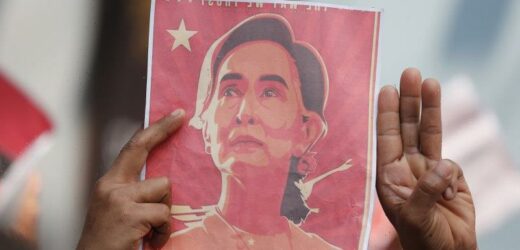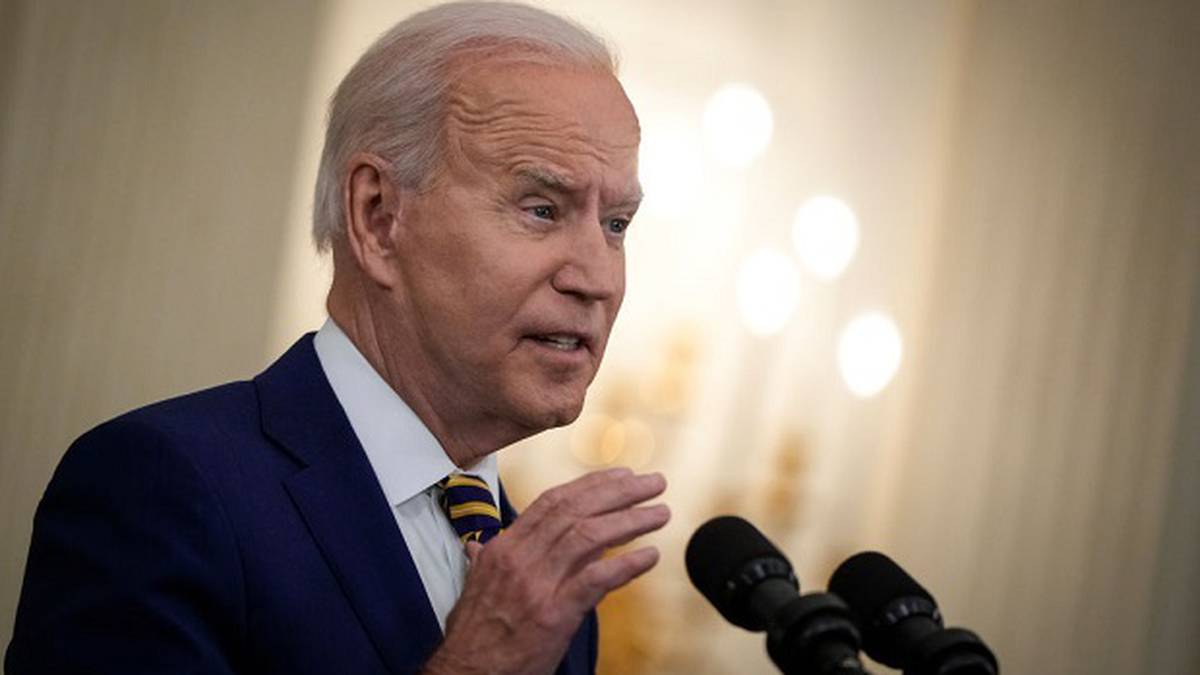United Nations: In a rare move, the UN General Assembly has condemned Myanmar’s military coup and called for an arms embargo against the country in a resolution that demonstrated widespread global opposition to the junta and demanded the restoration of the country’s democratic transition.
Supporters had hoped the 193-member UN General Assembly would approve the resolution unanimously by consensus, but Belarus called for a vote on Friday New York time (Saturday AEST). The measure was approved with 119 countries voting “yes,” Belarus voting “no” and 36 countries abstaining including Myanmar’s neighbours China and India, along with Russia.
UN special envoy Christine Schraner Burgener warned the General Assembly after the vote that “the risk of a large-scale civil war (is) real”.
China’s Foreign Minister Wang Yi at right bumps elbows with with Myanmar’s Foreign Minister U Wunna Maung Lwin in Chongqing, China on June 8, 2021. Beijing abstained from the UN vote condemning the junta. Credit:Xinhua
“Time is of the essence,” she said. “The opportunity to reverse the military takeover is narrowing and regional threat increasing.”
The resolution was the result of lengthy negotiations by a so-called Core Group including the European Union and many Western nations and the 10-member Association of Southeast Asian Nations known as ASEAN, which includes Myanmar.
A UN diplomat said there was an agreement with ASEAN to seek consensus. But in the vote, its members were divided. Myanmar, whose UN ambassador supports the ousted democratic government, voted “yes” along with Indonesia, Singapore, Malaysia, Vietnam and the Philippines while Thailand, Laos, Cambodia and Brunei abstained.
Even though the resolution didn’t get the overwhelming support its backers hoped for, the action by the General Assembly, while not legally binding, reflects international condemnation of the February 1 coup that ousted Aung San Suu Kyi’s party from power and put her under arrest along with many government leaders and politicians, as well as strong opposition to the military crackdown on protesters demanding an end to the army’s takeover.
The resolution’s approval follows calls for more aggressive UN action by many countries and Myanmar’s UN Ambassador Kyaw Moe Tun, who has been charged with treason by the military junta. He urged the international community “to take the strongest possible action to immediately end the military coup”.
The more powerful UN Security Council, whose resolutions are legally binding, has adopted several statements on Myanmar, including condemning the use of violence against peaceful protesters, calling on the military to restore the democratic transition and “exercise utmost restraint” and “on all sides to refrain from violence”. But it has never been able to condemn the coup or authorise an arms embargo or other sanctions because of an almost-certain veto by China and possibly Russia.
The resolution calls on Myanmar’s military junta to restore the country’s democratic transition, condemns its “excessive and lethal violence” since the coup, and calls on all countries “to prevent the flow of arms into Myanmar”.
A woman in a makeshift tent in a displaced-person’s camp in Kayah, eastern Myanmar. An estimated 108,800 people in the region have fled their homes following fighting between the military and the local militia. Credit:AP
The resolution also calls on the armed forces to immediately and unconditionally release President Win Myint, State Counsellor Suu Kyi and other government officials and politicians detained after the coup, “and all those who have been arbitrarily detained, charged or arrested”.
EU Ambassador Olof Skoog said the resolution “sends a strong and powerful message,” calling it “the broadest and most universal condemnation of the situation in Myanmar to date.”
“It legitimises the military junta, condemns its abuse and violence against its own people and demonstrates its isolation in the eyes of the world,” he said. “The UN community of nations has expressed resounding support to the people of Myanmar – that their human rights and freedoms must be protected, and that their democratically elected leaders must be released from detention.”
Richard Gowan, UN director of the International Crisis Group, said he is “only aware of three previous General Assembly resolutions condemning coups in this way since the end of the Cold War” – Haiti in 1991, Burundi in 1993 and Honduras in 2009.
The assembly has called for arms embargoes and sanctions, including on Israel and South Africa during the Cold War, Gowan said, but “this is a rare call to stop arms flows, and Western diplomats deserve credit for getting a fairly clear and firm call to halt arms supplies to Myanmar, especially as ASEAN members had doubts about such language.”
The resolution also addresses another major issue facing Myanmar’s military — its relations with ethnic minorities, especially Rohingya Muslims in northern Rakhine state. Over 700,000 Rohingya fled a military crackdown in in 2017 and are now in camps in Bangladesh.
The General Assembly expressed concern over the human rights of the Rohingya and other minorities, singling out the denial of citizenship to almost all Rohingyas “and reiterating the responsibility of the Myanmar armed forces to respect the human rights of all persons in Myanmar”.
AP
Most Viewed in World
From our partners
Source: Read Full Article




